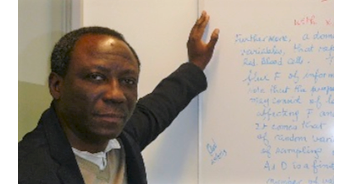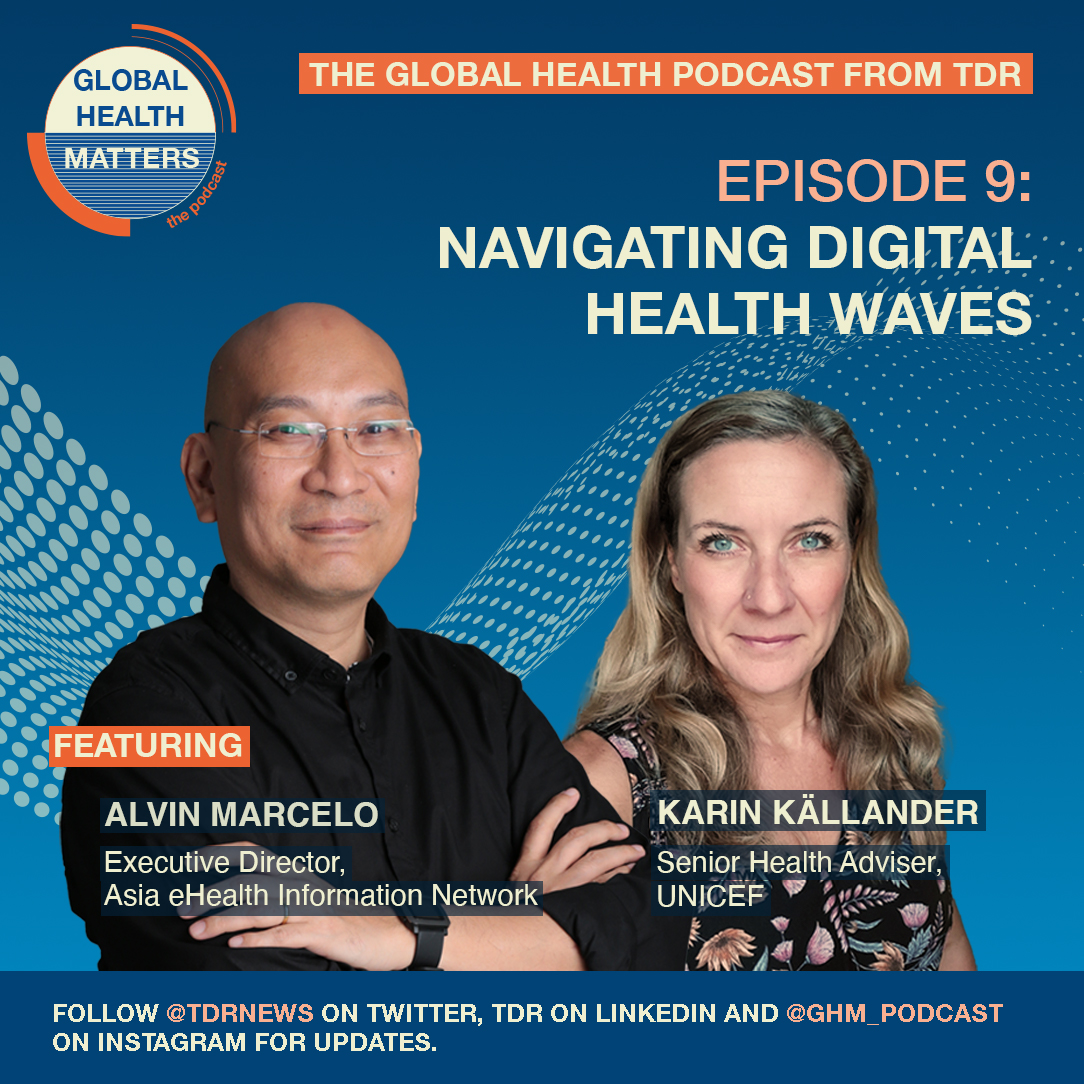 Dr Eustache Muteba Ayumba is a researcher based in the Democratic Republic of the Congo who specializes in information technology, communications, telecommunications and medical informatics. He is the principal investigator for an implementation research project that designed the Virtual Community of Healthcare Facilities, a platform designed to connect rural healthcare centres to medical resources. This project was supported by TDR's Impact Grants for Regional Priorities in collaboration with WHO’s Regional Office for Africa.
Dr Eustache Muteba Ayumba is a researcher based in the Democratic Republic of the Congo who specializes in information technology, communications, telecommunications and medical informatics. He is the principal investigator for an implementation research project that designed the Virtual Community of Healthcare Facilities, a platform designed to connect rural healthcare centres to medical resources. This project was supported by TDR's Impact Grants for Regional Priorities in collaboration with WHO’s Regional Office for Africa.
What issues does your implementation research address?
It addresses malaria case management – consisting of early diagnosis and prompt, effective treatment. This is the core of malaria control and elimination strategies.
In low-income countries (such as the Democratic Republic of the Congo) a specific challenge for public health professionals is how to accurately distinguish malaria symptoms from other febrile illnesses with similar characteristics. In remote rural areas, microscopic diagnosis is slow, inaccurate and done in non-specialized laboratories; lab technicians have difficulty reading smear results to rapidly determine the species and stage of plasmodium, putting healthcare professionals and their patients in these areas at a particular disadvantage.
Through a web connection the system will support physicians and healthcare professionals in any location [in the country] rapidly identify malaria type and severity for individual patients and so prescribe the optimal treatment
What results did your research produce?
To help address this lack of expertise, and improve access to malaria diagnostic tools, we have designed the prototype Virtual Community of Healthcare Facilities platform – an e-health platform that aims to give healthcare professionals in remote areas better access to quality information and expertise.
What services will the Virtual Community of Healthcare Facilities system offer?
Eventually, doctors will be able to use this web-based medical decision support system based on artificial intelligence in their consultations for malaria diagnosis and therapy. Through a web connection the system will support physicians and healthcare professionals in any location [in the country] rapidly identify malaria type and severity for individual patients and so prescribe the optimal treatment.
The system will have five components:
- Optimization of malaria treatment – a medical decision support system that guides healthcare professionals to a rapid and accurate malaria diagnosis. This improves the quality of care, especially in remote rural areas.
- Virtual lab – a diagnostics system for healthcare professionals to conduct an automatic diagnosis of malaria using a ‘virtual slide’ function to analyse microscopic data. This links non-specialists to malaria experts for advice.
- Expert tool – a decision support system useful for experimentation, linked to the two previous tools.
- Malaria ontology – this provides semantics that are relevant to the medical decision system.
The e-health platform will also have a growing library of e-learning resources on malaria – including articles, reports, videos, documentation and quizzes – that healthcare professionals can consult to deepen their knowledge of diagnosis and treatment.
Virtual Community of Healthcare Facilities (VCHF): Optimization of Malaria Treatment (OMAT)
Eustache MUTEBA AYUMBA
Ministère de l'Enseignement Supérieur Universitaire et de la Recherche Scientifique, Kinshasa
Democratic Republic
of the Congo (2018)


